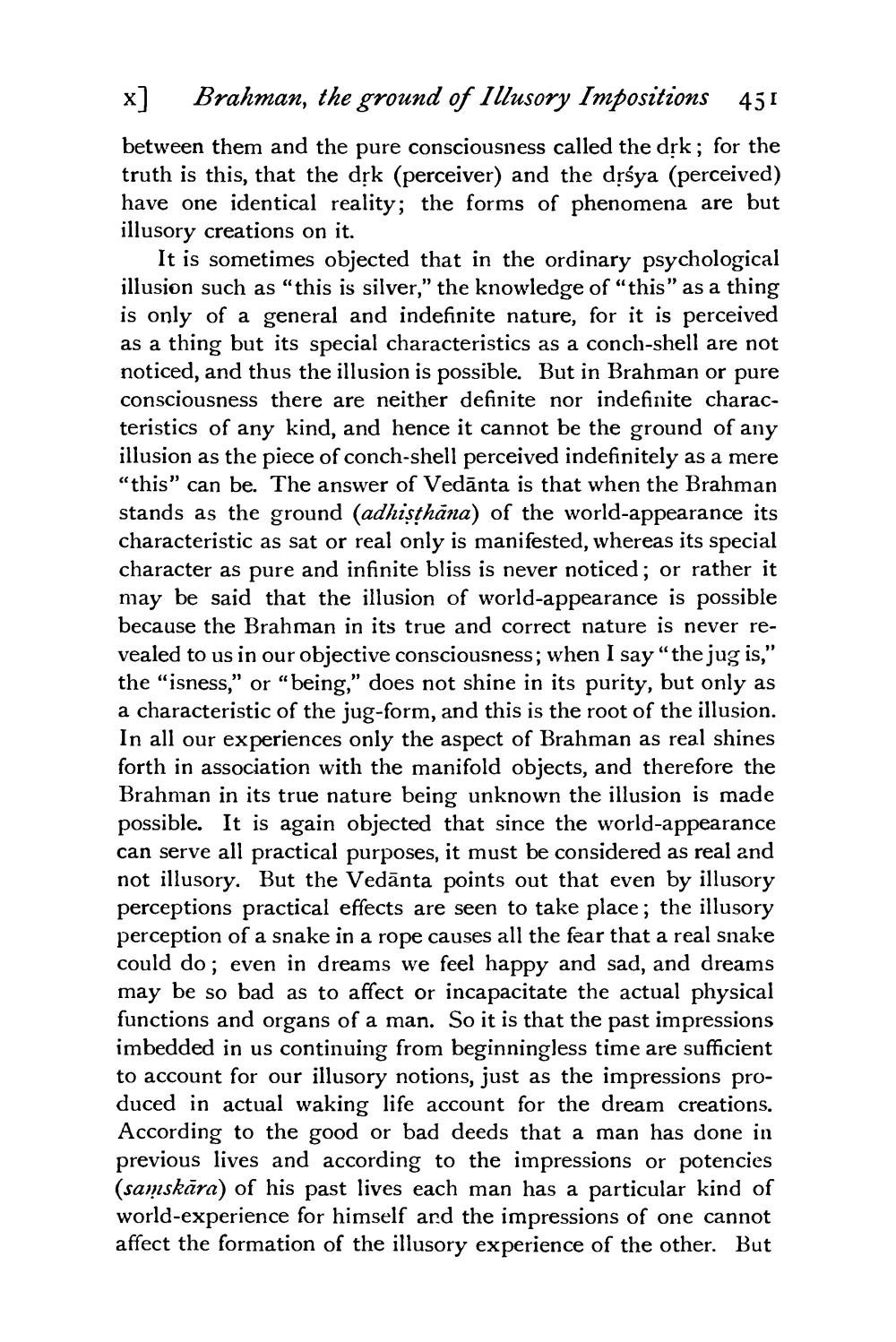________________
x] Brahman, the ground of Illusory Impositions 451
between them and the pure consciousness called the drk; for the truth is this, that the drk (perceiver) and the dṛśya (perceived) have one identical reality; the forms of phenomena are but illusory creations on it.
It is sometimes objected that in the ordinary psychological illusion such as "this is silver," the knowledge of "this" as a thing is only of a general and indefinite nature, for it is perceived as a thing but its special characteristics as a conch-shell are not noticed, and thus the illusion is possible. But in Brahman or pure consciousness there are neither definite nor indefinite characteristics of any kind, and hence it cannot be the ground of any illusion as the piece of conch-shell perceived indefinitely as a mere "this" can be. The answer of Vedanta is that when the Brahman stands as the ground (adhiṣṭhāna) of the world-appearance its characteristic as sat or real only is manifested, whereas its special character as pure and infinite bliss is never noticed; or rather it may be said that the illusion of world-appearance is possible because the Brahman in its true and correct nature is never revealed to us in our objective consciousness; when I say "the jug is," the "isness," or "being," does not shine in its purity, but only as a characteristic of the jug-form, and this is the root of the illusion. In all our experiences only the aspect of Brahman as real shines forth in association with the manifold objects, and therefore the Brahman in its true nature being unknown the illusion is made possible. It is again objected that since the world-appearance can serve all practical purposes, it must be considered as real and not illusory. But the Vedanta points out that even by illusory perceptions practical effects are seen to take place; the illusory perception of a snake in a rope causes all the fear that a real snake could do; even in dreams we feel happy and sad, and dreams may be so bad as to affect or incapacitate the actual physical functions and organs of a man. So it is that the past impressions imbedded in us continuing from beginningless time are sufficient to account for our illusory notions, just as the impressions produced in actual waking life account for the dream creations. According to the good or bad deeds that a man has done in previous lives and according to the impressions or potencies (samskāra) of his past lives each man has a particular kind of world-experience for himself and the impressions of one cannot affect the formation of the illusory experience of the other. But




